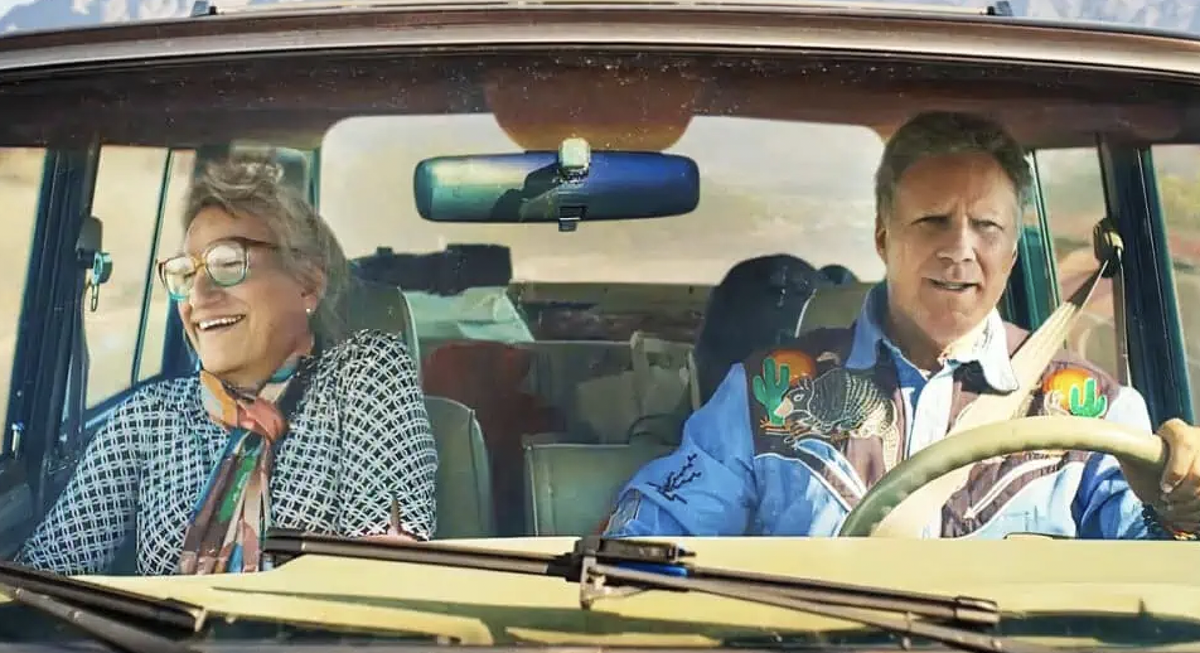Despite the negative connotations of my headline, I am by no means suggesting that I disliked Will & Harper. In fact, the opposite is true. A few weeks back, I openly admitted to crying at the trailer, and I firmly believe that it is deserving of its almost perfect Rotten Tomatoes score – it has 99% on the ‘Tomatometer’ at the time of writing. The Netflix movie is an essential watch, but you may find it uncomfortable in places.
That is no bad thing. I firmly believe that more Netflix documentaries should have the confidence to be this raw and vulnerable. While its message of self-acceptance, as well as the acceptance of others is clear, it doesn’t shy away from showing mistakes along the way. It does not feel rehearsed, it feels genuine, and watching two long-term friends navigating a big change was presented with the honesty it deserved.
The documentary centers on the friendship between comedy legend Will Ferrell and his friend, Harper Steele. Before meeting on Saturday Night Live, where Steele was a head writer, Ferrell had known him as Andrew, a cisgender man. Ferrell later received a deep, heartfelt email from Steele about him coming out as transgender and identifying as a woman. He later learned his friend’s new name was Harper, and this prompted Ferrell to suggest a road trip where he could get reacquainted with his friend and ask some important questions.
Straight away, Ferrell supported Steele. He admitted he was shocked, but at no point did he hold any vitriol towards his friend. This was nice to witness on many levels. For a start, he’s a huge public figure who people look up to, so the fact he was so supportive is a positive thing to see. He took the initiative to teach himself and the world about a social issue, a topic that isn’t always easy to approach or understand. He went into it with his signature humor as well as some tenderness, resulting in a rollercoaster of a documentary.
What exactly went wrong during Will & Harper?
If we’re being honest, a lot. From some slightly sexist questions such as Ferrell asking Steele if she was a worse driver now, to conversations about new boobs, there’s a lot that modern audiences might cringe at. But I think it’s important to examine the subjects at the heart of the movie; Will Ferrell is a 57-year-old man who is used to crude humor, and Andrew Steele wrote those sorts of jokes with him during their respective careers. They’re used to coping with humor like this, Steele at no point seemed uncomfortable and even threw jokes of her own right back. The jokes never felt malicious, instead it felt in line with the relationship they always had, and viewers were given an intimate look at how these two interact.
It is impossible for us to fully see the extent of their friendship throughout a two-hour movie, and being thrown into this typically masculine environment of beer jokes, gender jokes, and more, can feel a little jarring at first if that’s not something you’re used to. But throughout all of it, Ferrell was consistently supportive. He had breakfast with Steele’s children, stayed with her sister, and got some different perspectives. He listened and, to his credit, did know when to stop the jokes and actually take things seriously.
Ferrell also messed up on two occasions. The first was during a basketball game where he boldly spoke about his transgender friend to Eric Holcomb, a governor who signed a bill banning gender-affirming care for minors in Indiana last year. Not knowing who Holcomb was, nor his recent policies, Ferrell had not considered the fact others may not be so supportive of Steele. As hard as this was to watch, I thought it was important as it allows viewers to see two opposing sides of the same issue, and how it is very easy for us to bring up topics around people who may have differing views.
The second was a restaurant scene where he decided to take on an eating challenge at a steakhouse in Texas. While there, his celebrity status draws attention and he introduces his friend to the crowd as “Miss Harper Steele”. The announcer fumbled addressing her properly, and this prompted an onslaught of social media hatred calling both Ferrell and Steele insults, while intentionally misgendering the latter. This is arguably the most uncomfortable scene of the movie.
But it’s crucial that scenes like these are left in. They’re interspersed with other, more wholesome scenes like people in dive bars being kind towards Harper, and meeting with others who have shared similar experiences. As they travel the country and meet with a variety of different people, it’s ultimately a hopeful movie and it felt important for Harper to visit some of the places she’d enjoyed years ago.
Being so vulnerable on camera is not easy, but this is one of the most important documentaries you’ll see. I urge you to give it a go as soon as possible.
Read the full article here














